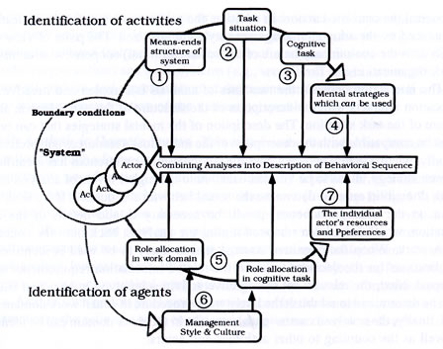
PSY 8310Cognitive Systems Engineering
The goal of this course is to introduce students to Cognitive Systems Engineering (CSE). In very simple terms, CSE is an overarching framework for the design of effective decision support. Rasmussen, Pejtersen, and Goodstein (1994) provide a succinct description of CSE:
One of the fundamental tenants of CSE is that design must begin with an explicit understanding of the “constraints” that are inherent to a domain. The abstraction and aggregation hierarchies are analytical tools that can be used to discover these constraints. These tools provide a structured approach to modeling a domain in terms of the critical categories of information that need to be considered (e.g., goals, functions, physical properties), the relationships between these categories, and the grain of resolution at which they are considered. A second analytical tool is the decision ladder. This tool provides a structured approach to modeling prototypical activities, the decisions that will be made during the course of these activities, and the underlying informational requirements. Other important considerations include the capabilities and limitations of the various cognitive agents (either human or machine) and the allocation of tasks and responsibilities to these various agents. The CSE approach is a very general one that can be applied to any work domain. It is particularly well-suited to address the design of decision support in complex, dynamic domains (i.e., today’s socio-technical systems). It is also quite complicated. About half of the course time is devoted to examining the framework, important concepts, and analytical tools. About a quarter of the course time is devoted to understanding the documented examples of how researchers have applied this framework to various work domains. The remaining course time is devoted to the novel application of this framework (by the student) to other work domain settings. © Kevin B. Bennett, all rights reserved phone: 937-775-2444 |
|
|

